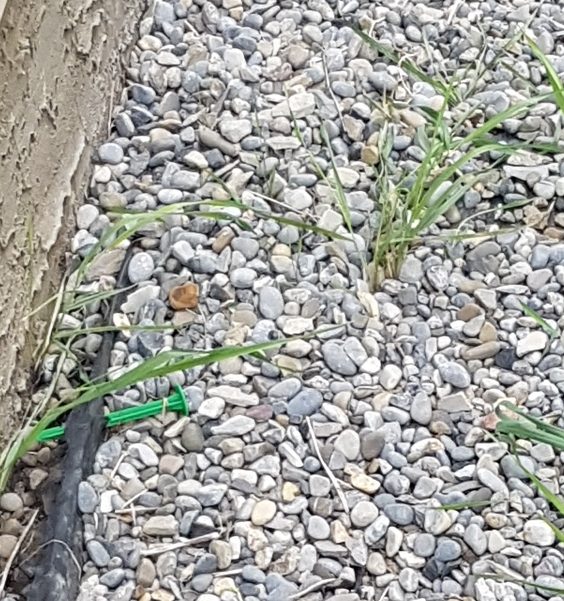
I don’t know who started this idea of “rock mulch”, or using rocks as a “ground cover”, but just stop it.
In my opinion, it is the WORST URBAN GARDENING IDEA EVER!!!!!
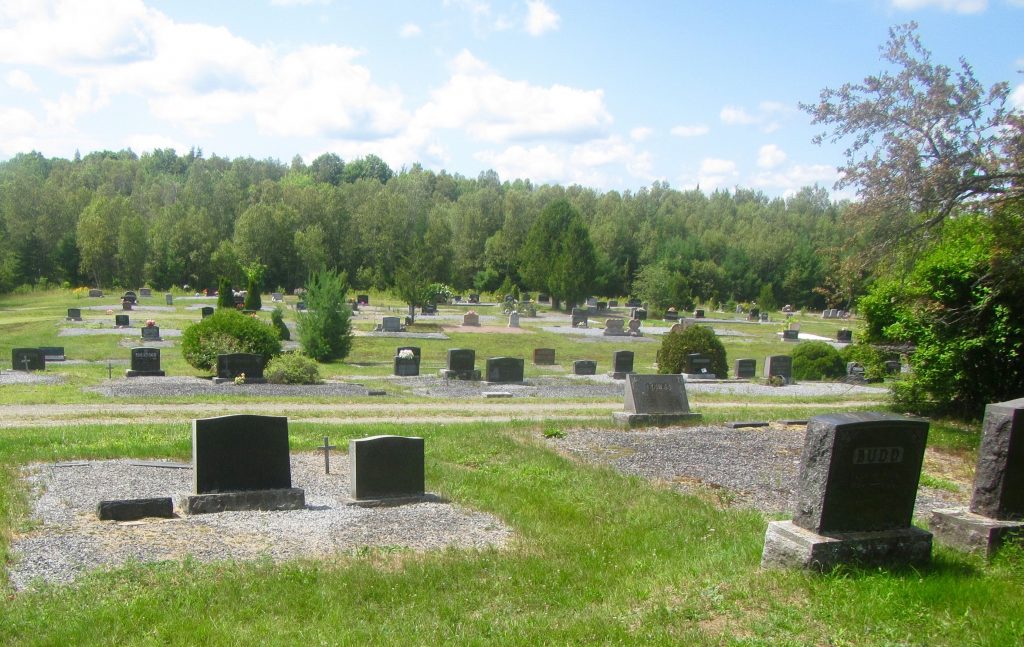
My dislike for this idea of rock mulch started way back when I was barely a teenager. The first experience I can remember to earn my own cash, was to mow the Rolling Dam United Church Cemetery in New Brunswick. As you can see from the picture above, it is an old, rural cemetery. Just as a reference, I have relatives buried there in the 1870’s. Many people seem to think that using rock mulch on burial sites is a good idea. These people have never had to mow these plots once the grass starts taking over. I can not count how many rocks I took off the shin in the years I mowed there.
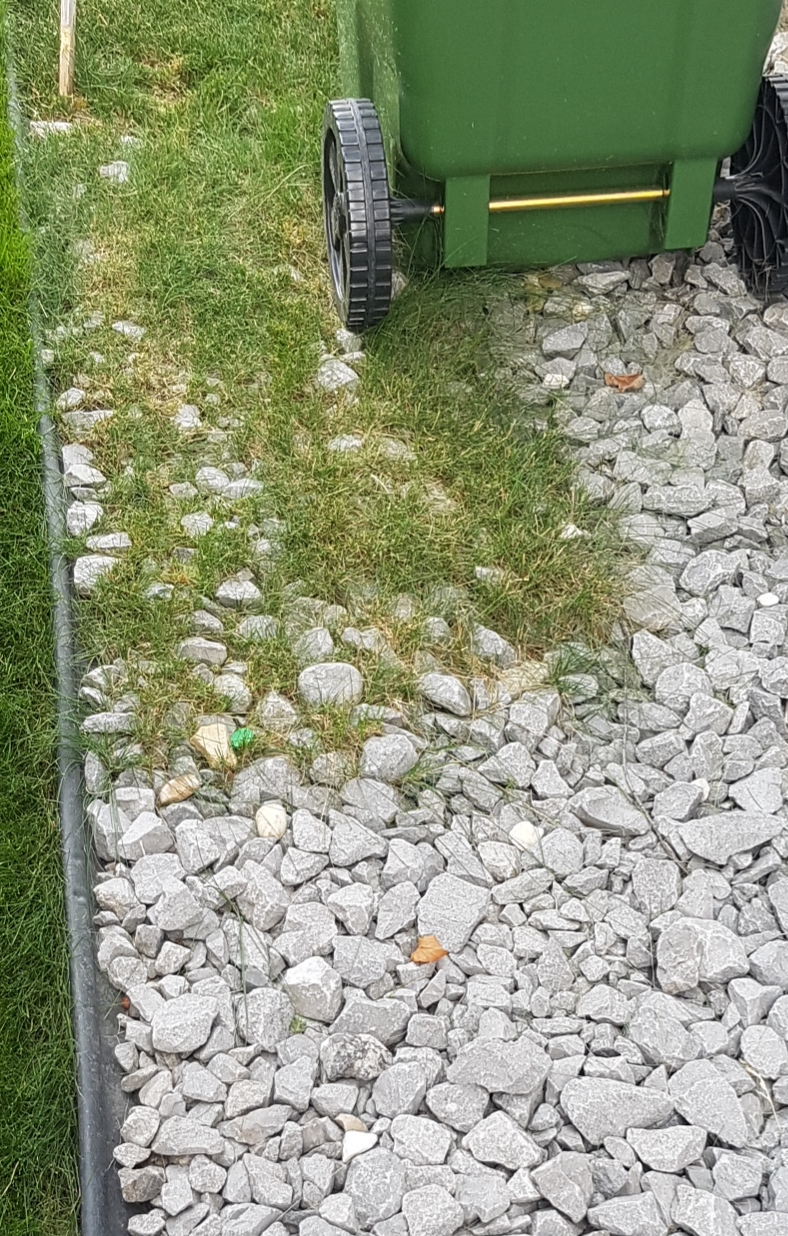
Now that time has past, my feelings haven’t changed. I have seen countless attempts to make this concept work, it just doesn’t. In the very short term, it may look clean and, I don’t know, distinctive? In a few short seasons it will show any short comings in the build, and then will require a lot of maintenance. Either in the form of chemical herbicides, or hours of labour pulling pioneering species of plants out from between the rocks. It will happen. Trust me.
Now don’t get me wrong. I like a well done rock garden. Big boulders, moss, running water, that kind of thing can be really nice. I am talking about rock mulch.
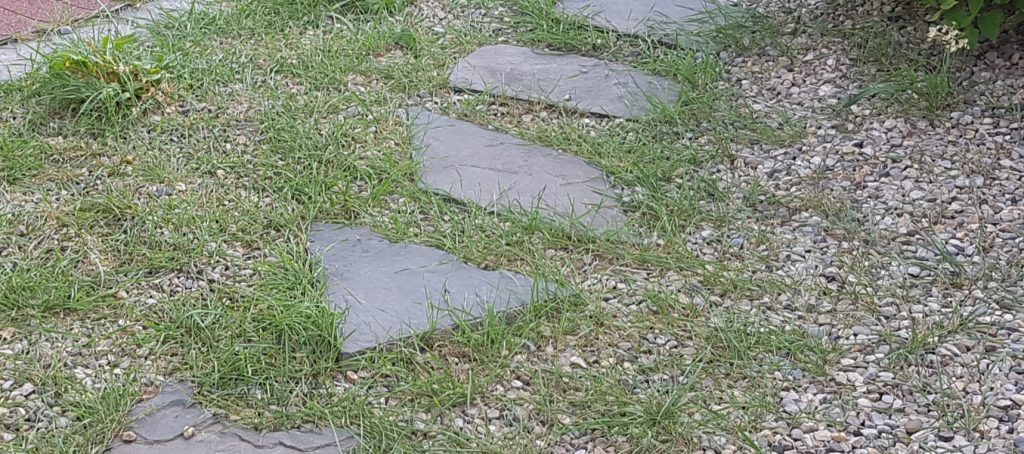
Why?
The problem is, to Mother Nature, those rocks equal bare ground. Mother Nature does not like bare ground. If there is a disturbance that leaves a bare spot in a natural setting, like the forest, it is quickly covered with leaf litter and then eventually a pioneering species of plant takes root. This plant lives out its life and gives way to a different species of plant. Which does the same, and so on. Mother Nature sees the rock mulch the same way. And, in the same way, she will cover those rocks with plants. In spite of our best efforts to deter that.
What Are The Supposed Benefits Of Rock Mulch??
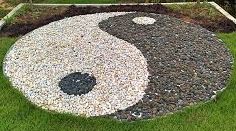
Lower Material Cost –
This may be true. I mean, they’re rocks. The equipment needed to place them can be more expensive though. I can haul over a cubic yard of wood mulch in my half ton, and place it fairly quickly with a wheelbarrow. I can barely get half that in rocks, which means more trips and placing them takes way more time with a wheelbarrow. You could get the rock mulch hauled to your property in a dump truck, and placed with either a skid steer of some other piece of equipment. But, then you are left to deal with the disturbance created by those machines.
I can fit a huge number of green cover crop seeds in my pocket. Costs approximately 6 bucks. Just saying.
Wind Resistant –
Ok sure, again they’re rocks. Don’t be mistaken in thinking that nothing will get caught up in the rocks though. Leaves, debris, and passing litter can be as much of a pain to rake out of the rock mulch, as it is to rake the blown out wood mulch back into the garden. There are techniques and grades of wood mulch that are less susceptible to wind, as well.
Green cover crops with a healthy root system will withstand even the strongest of winds.
Low Maintenance –
My left foot! Maybe for the first year, maybe 2 years if it is really done well. After that, if you haven’t had to blow or rake out the leaves and debris. It will definitely need to be done. Left in between the rocks, the grass, tree, and other seeds that have blown in the wind, have enough fine material and moisture built up that they can come out of dormancy and BOOM!…Mother Nature starts to take back the bare land. The only way to keep it low maintenance now is to apply some sort of chemical killer. Now you can still stay organic somewhat, but depending on what takes hold in the garden, it could be tough to get rid of.
Fire Resistant –
Ok, I think we are just stretching for benefits at this point.
Other Rock Mulch Considerations.
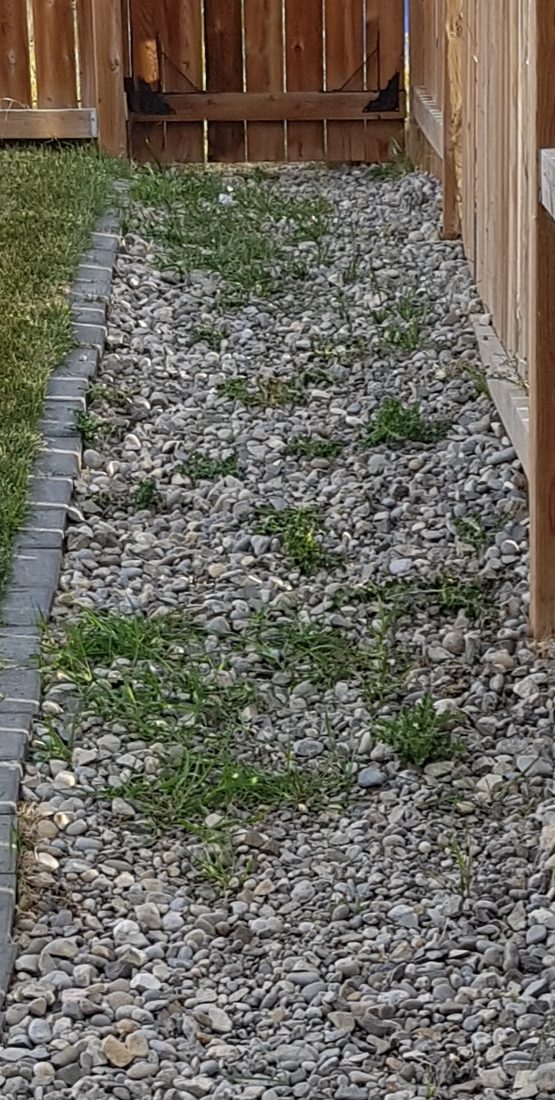
Raises The Temperature –
Having even light coloured rock mulch on the soil surface will absorb the heat and raise the temperature of the garden to a point that it can become another climate. This can be detrimental if the the plants are not prepared for that. It could make them dry out faster, requiring more water if nothing else.
Gives Nothing Back To The Soil –
Rocks will remain rocks for many lifetimes. If they disappear it is because they sank below the surface, the soil has built up over them, or they were really pretty and someone stole them. This happened to one of my clients. Shocking. But, over that time they have given nothing back to the soil in the form of nutrients or minerals. They have actually blocked the soil from getting much of the natural leaf litter mulch that would normally be available.
Can Make Pruning Difficult –
If there are plants and shrubs in your garden that require low pruning, or a tree that is starting to push up suckers, rock mulch, can make getting control of these more challenging. Again, it looks clean and sophisticated when the rock mulch is new. Once the garden starts to get established, things start to go a different way. Or, at least they can.
No Easy Way To Get Rid Of Them –
Bigger rocks will have to be removed by hand. one or two at a time. Unless ripping out the entire garden is in the plan. Then bigger equipment can be used, though they have their own footprint. Smaller rock mulch can be raked out somewhat, thought that is a laborious job let me tell you. The resulting mess of rocks and will have to get further processed as well, to be of any use other than clean fill at the landfill.
Where Did They Come From? –
Something seldom talked about is where did the rocks come from in the first place? Even if the rocks have come from an established pit or quarry and the environmental impact was already there. I am not sure if adding rock mulch to the garden is worth the cost. Maybe use those rocks for roads and I’ll use something green in my garden.
Organic Alternatives To Rock Mulch
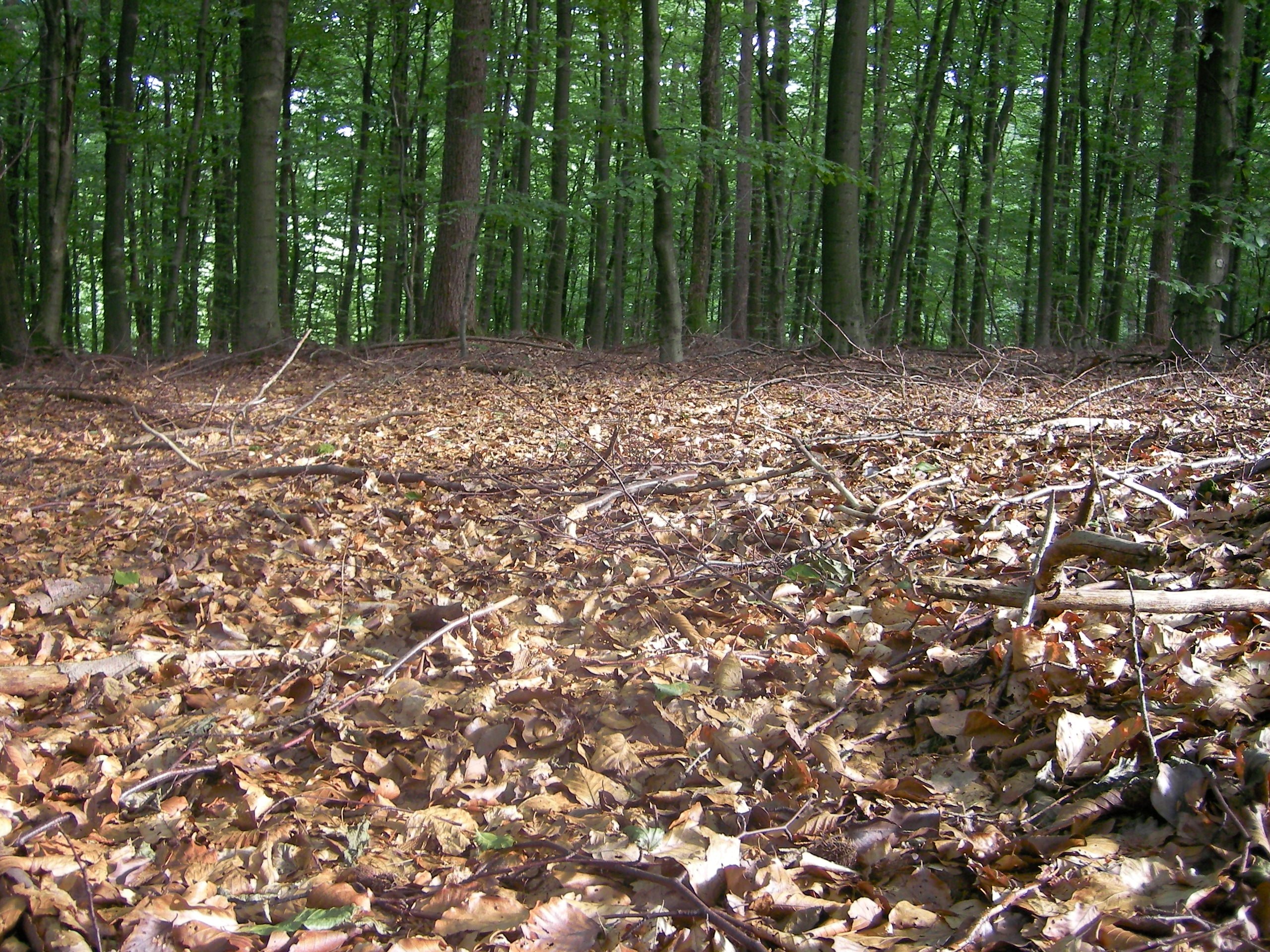
Wood Bark Mulch
Although bark mulch is a better alternative, in my opinion, to rock mulch. There are some things to consider as it is not for every garden. In a garden that is primarily woody shrubs and trees, it can be good. Providing that the trees match the mulch. Newly planted gardens do better with a hardwood mulch, while larger, more established trees will do well with softwood bark mulch. Softwood mulch tends to be more acidic, which will effect your soil in time. Vegetable gardens like a more bacterial soil, so using wood mulch in a vegetable garden is not a good idea. Wood mulch is more intended for a fungal dominant soil, like perennial shrubs.
Eventually, bark mulch can fall to the same fate as the rock mulch. The pioneering species of plants will find a way to cover what Mother Nature sees as bare ground. Though slightly easier to remove, still a laborious job none the less. Wood mulch will need to be topped up every couple of years as well, as it breaks down into the soil.
Straw
Straw is useful in gardens where the goal is more a bacterial dominant or balanced soil. Vegetable gardens, lawn areas, annual flower beds. Straw is great because it is usually pretty inexpensive and a little can go a long way as far as keeping moisture in the ground. One word of caution though is about left over seeds. This may or may not be an issue depending on the intended use, however, something to keep in mind. You can also get straw in pellet form now. That will alleviate any seed germination concerns.
Leaves
Leaves are great because they are free for the most part. Many people pay to get rid of them. Leaves are a natural mulch for perennial shrubs and tree beds. They are handy for vegetable beds, however, too many can change the soil biology, and bring in too much fungal matter. They are great for winter protection though. A big pile of leaves will protect the soil and microbiology from any freeze/thaw cycles in the winter. The excess can be removed in the spring and either mulched into the lawn, placed in the compost bin, or moved to the perennial beds as a fresh layer of mulch.
Green Living Ground Cover
The best way to keep unwanted plants out of your garden is to fill your garden with wanted plants. Mother Nature wants the bare ground covered. She is not terribly picky about what those plants are. A green ground cover does not have to involve a lot of investment. Simply spreading seeds and helping the new seedlings to get established will ultimately lead to less work down the road. Planting small plants that spread can give the process a head start. Make sure the ground cover can be contained to the area and will grow without competing with other plants in the garden.
Anything but rock mulch!
